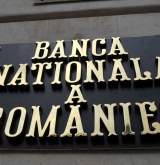The financial crisis is also a change of mentality at the level of tax policy in Romania, as ten specialists in Romania observe.
“Crisis situations brings the opportunity for deep reforms, they bear a great potential in changing mentalities, and Romanian tax policy as well. Ideologies turn around from party-minded to hardheaded, but unfortunately, the governments can easily transit the period of fear between the two stages”, said Mihaela Mitroi, Partner, Tax and Legal Advisory, Pricewaterhouse Coopers Romania (PwC).
This is the time when legislators make bootless measures, such as boomerang measures that backfires the opposite effect rather than the one intended. “For instance, the additional charge of labor, in a moment of already excessive burdening when legislators were already running a program of gradual reduction of heavy tax load established on wages”, said Mitroi.
There are enough successful models for comprehensive and efficient tax policies, Mitroi notes, as there are many counterexamples. However, it remains to be seen what values will be considered in the future tax policy decisions made by Romanian legislators.
“Personally, I don’t believe in a fundamental mentality change “, PwC representative pointed out.
Illegal labor comes at some cost to the state budget, triggering in first nine months in 2008 losses of over 29.5 billion lei, namely 50.8% of the underground economy, according to a research of Ministry of Finances, based on the analysis of National Commission of Prognosis. Therefore, the quest for solutions to improve collection system and to include underground economy wages into the system becomes the appropriate measure.
Mihaela Mitroi says the revenue agency is starting to crack the whip on collections, namely foreclosures, aggressive fiscal inspections, tax fraud record instrument. They all have the anticipated outcome, but they don’t achieve anything more than positive incentives: open fiscal authorities, lack of hostility, as the willing to ease the life of the good payer as much as it is willing to penalize the tax dodger.
“Therefore, I believe in the mixture of using discounts as indemnity for responsible tax behavior and harsh penalties for default and evasion. We’ve seen so far an opposite treatment: responsible taxpayers to receive harsh penalties for inherent errors in default of a proper legislation and bad payers treated with deferrals and tax amnesties,” says Mihaela Mitroi.
“I said it and I will say it again: the collection level depends heavily upon the quality of the partnership between revenue agency and taxpayers, upon the transparency and predictability in the legislation and practice of fiscal administration. It is not the best time for the revenue agency to make the life of economic agents a living hell, economic agents who play by the rules of the game and didn’t sink into the underground economy. On the contrary, it is the moment to extend a friendly hand to them,” PwC representative added.
KPMG: The possible anti-crisis tax policies may involve running a moderate budget deficit
As for the improvement of tax collection system and insertion of earnings from the underground economy, Madalina Racovitan, Senior Manager, Taxation Services, KPMG Romania, said the tax administration policy calls for a change in mentality, to streamline and secure the transparency of the system.
“The best example of tax collection system’s deficiency is the deferred refund of VAT or other taxes due to excessive bureaucracy”, says Racovitan.
Another aspect that calls for improvement is the assistance of taxpayers in puzzling out the particularities arising while enforcing the fiscal legislation in their activities: the legal framework necessary to provide these facilities is in force, but in practice, no official opinion has been made public, even though there have been taxpayers who claimed it.
Cristea, Deloitte: A raise of the flat income tax would not be the best move
The implementation of a gradual reduction of social contribution strategy should have been a major point in the tax policy in order to preserve Romania’s competitive aspects with respect to the attraction and preservation of labor force, especially the qualified workers , after Romania’s accession to EU membership, and free movement of labor force in Europe, said Deloitte Romania.
“The raise of social contributions in the midst of economic crisis and liquidity drought, is only boosting the company’s payrolls, speeding up the reorganization/downsize decision-making or the enforcement of measures for the underground economy, such as partial statement of payroll amount”, said Alexandru Cristea, Manager, Deloitte Tax, adding that in the end, the state budget will be affected by the increase of unemployment benefits or by the loss of revenues.
Angela Rosca, TaxHouse: The taxpayer, a “hen that lays golden eggs”
The crisis situation should involve a change of mentality at the level of fiscal policy in Romania, as to see the taxpayer as a “hen who lays golden eggs”, said Angela Rosca, Managing Partner at TaxHouse.
For example, not only now, in the midst of financial crisis, but in the past years, but especially now, several countries had adopted tax policies that paved the way to a direct negotiation of taxes within a legal framework, between taxpayer and fiscal authorities.
“When the taxpayer finds himself in difficult financial situation, the approach of Romanian authorities is the same in all cases: taxes must be paid on time, without any delay, without any possibility of deferring the deadline until better times for the company. In the event of a more acute liquidity crisis, this measure would be very beneficial for good payers (those “hens who lay golden eggs”), who don’t want to receive financing from the state, but who finds themselves in the impossibility of paying taxes to it, due a failure in cashing their own account receivables from the third parties”, said Angela Rosca.
Ionescu, NNDKP: The financial market dragged the entire economy into crisis, and that is the one who needs a cure
The crisis stems from financial system and this is where it must be solved, this is the conclusion of Marius Ionescu – Partner, NNDKP, Tax Advisory, adding that in order to counter the crisis, there is not much to do in the tax legislation.
At this point, there are not major aspects in the Fiscal Code that need to be changed, as some of them are strictly technical and deal with the enforcement of European laws, which need to be changed. Not major things anyway.
“Strictly related to the economic crisis, there are certain measures to be adopted in tax law, such as the raise of deduction level of provisions or the raise of deduction for interests in case of loans granted from other institutions than financial ones”, said Marius Ionescu.
Gabriel Biris: The state should stop being the main economic lockdown generator
Gabriel Biris, partner of Biris Goran tax advisory and law firm, believes the current shaky economic conditions call for a more comprehensive strategy, designed to secure both the required budgetary resources, but also to stimulate the economic growth. Moreover, the situation involves also a change of mentality, because unfortunately, the speculations and efficient labor was more stimulated than investments.
The taxes on labor are, Biris notes, and will remain one of the highest in Europe and “we have to admit that there are certain problems that need to be solved in order to abolish tax evasion or black labor”.
Daniel Anghel, PwC, on the reduction of the failure to cash the account receivables from the companies
Tax incentives combined with a significant reduction of bureaucracy are handy measure for all legislators to encounter the immediate effects of the crisis, says Daniel Anghel – Partner, Indirect Taxes, Pricewaterhouse Coopers.
“When it comes to stimulating the economy, the no 1 priority should be the endorsement of business environment in an effort to preserve the liquidity parameters. The banking systems is more reserved when it comes to granting loans for investment or to support the current activities, although this is highly necessary to avoid breakdowns in the private system and not only”, Anghel pointed out.
In this context, the tax instruments play a major role in leading economic agents to default.
Simon, PwC: Economic groups, bound to pay taxes afferent to inexistent combined revenues
Ionut Simion, Partner, Tax and Legal Advisory at Pricewaterhouse Coopers Romania, finds the revision of the fiscal code as to adjust it to the realities of Romanian economy as opportune, as something to do even during good economic times. “The crisis is part of the realities of Romanian economy, therefore, its effects must be considered in reshaping the tax law”, Simon comments.
There are several aspects that should be taken into consideration. Simon mentions the renewal of the underlying principles of the tax policy in Romania, a regulation of the law on tax consolidation or alternative measures, introduction of holding-like legislation, new measures on VAT eligibility and the tax to become eligible at the payment date of the invoice.
Doros, MFP: Romania has a tax law in line with the newest standards in the field
According to Dragos Doros, director at General Direction Legislation Direct Taxes, within the Ministry of Finances of Romania, as of 2004, the new Fiscal Code and Fiscal Procedure Code came in force, whose provisions are based on a solid legal groundwork and on European and international expertise.
Citeste si:
Calculator Salariu: Afl─â c├ó╚Ťi bani prime╚Öti ├«n m├ón─â ├«n func╚Ťie de salariul brut ┬╗
Te-ar putea interesa și:


















































































![HR [PLAY] Tech Workout - 11...](https://www.wall-street.ro/image_thumbs/thumbs/973/973fe0a3888d417feff63de42e814180-260x260-00-65.jpg?v=1714089384)









